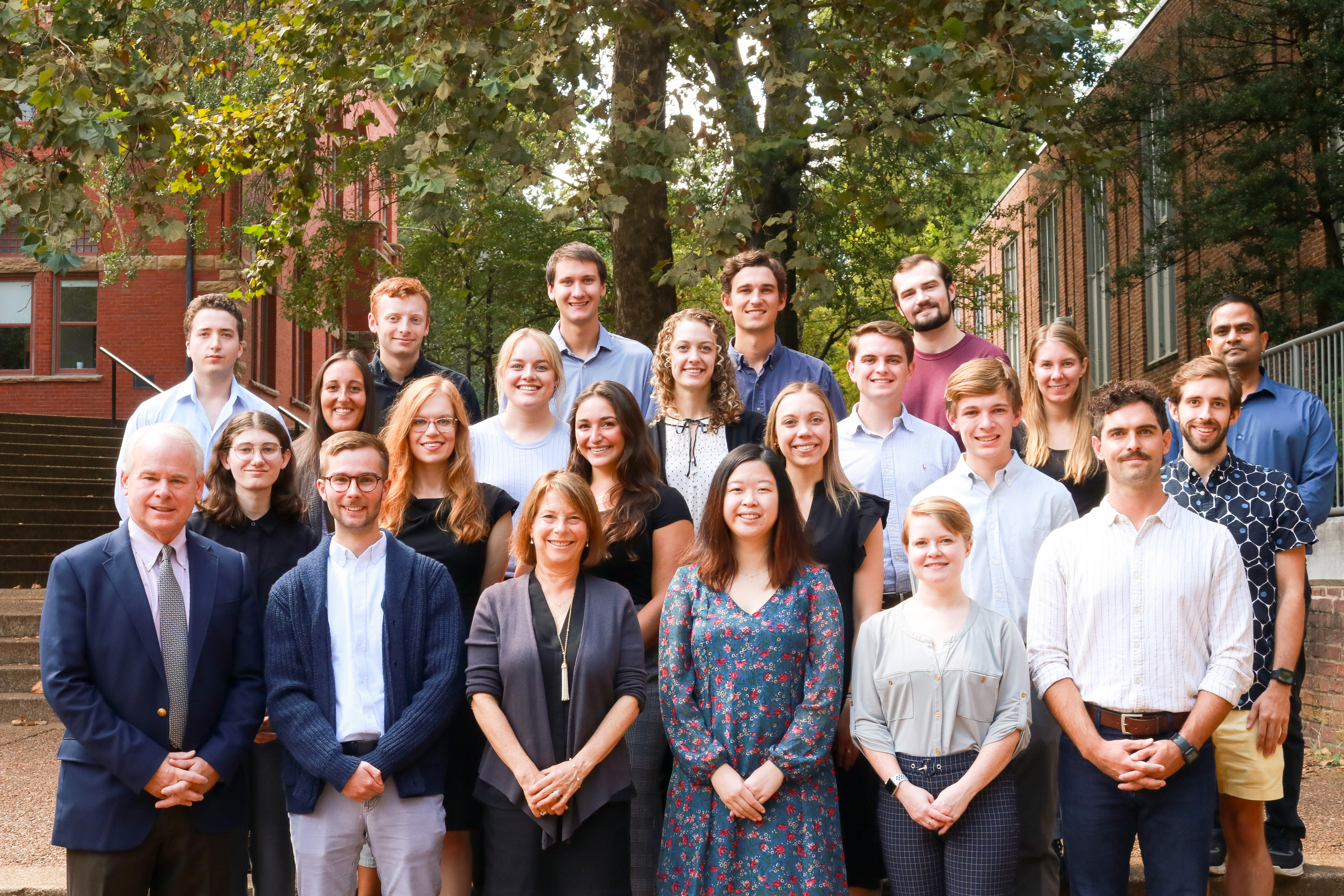Environmental Law and Policy Annual Review
The Environmental Law and Policy Annual Review (ELPAR) is published annually in the August issue of the Environmental Law Reporter (ELR) in collaboration with the Vanderbilt University Law School (VULS) and the Environmental Law Institute (ELI) in Washington, DC. Each year, Vanderbilt Law students work with an expert advisory committee, senior staff from ELI, and Vanderbilt law professors to identify the year’s best academic articles that present legal and policy solutions to pressing environmental problems.
Learn more
The result is a one issue, student-edited volume that includes condensed versions of the selected articles, along with commentaries from leading experts from the academy, law firms, business, government and non-governmental organizations. Visit the Publications page to read the latest ELPAR publication.
In conjunction with the publication, ELI and Vanderbilt co-sponsor an annual conference at which the authors of the articles and article commenters present their ideas and views to an audience that includes business, government (federal, state, and local), think tank, and non-profit representatives.
ELPAR is designed to bring ideas from the academy to policymakers and practitioners, as well as recognize and incentivize scholars to write articles that include creative and feasible law and policy proposals. This is made possible through the support of an expert advisory committee.
ELPAR 2023-2024
Selected Articles
- Felix Mormann, Climate Choice Architecture, 64 B.C. L. REV. 1;
- Christiana Ochoa, Kacey Cook, and Hanna Weil, Deals in the Heartland: Renewable Energy Projects, Local Resistance, and How Law Can Help, 107 MINN. L. REV. 1055; and
- Dave Owen, The Negotiable Implementation of Environmental Law, 75 STAN. L. REV. 137
Honorable Mentions
- Caroline Cecot, Efficiency and Equity in Regulation, 76 VAND. L. REV. 361;
- Goran Dominioni and Daniel C. Esty, Designing Effective Border Carbon Adjustment Mechanisms: Aligning the Global Trade and Climate Change Regimes, 65 ARIZ. L. REV. 1;
- Alexander Gouzoules, Going Concerns and Environmental Concerns: Mitigating Climate Change Through Bankruptcy Reform, 63 B.C. L. REV. 2169; and
- Michele Okoh, Forgotten Waters, 111 GEO. L.J. 72.

Past Events
2024 ELPAR Conference
Environmental Law Institute
Friday, April 5, 2024
Each year, Vanderbilt Law School and the Environmental Law Institute identify innovative environmental law and policy proposals in the academic literature. Leading professors, policymakers, and practitioners were invited to discuss the proposals selected this year.
Articles for Discussion
- Felix Mormann, Climate Choice Architecture, 64 B.C. L. REV. 1;
- Christiana Ochoa, Kacey Cook, and Hanna Weil, Deals in the Heartland: Renewable Energy Projects, Local Resistance, and How Law Can Help, 107 MINN. L. REV. 1055; and
- Dave Owen, The Negotiable Implementation of Environmental Law, 75 STAN. L. REV. 13
2024 ELPAR Local Conference
Vanderbilt University Law School
Monday, March 4, 2024
The 2024 ELPAR Local Conference in Nashville invited a panel of leading policymakers, practitioners, and professors to discuss Going Concerns and Environmental Concerns: Mitigating Climate Change Through Bankruptcy Reform by Alexander Gouzoules. The article was selected for an honorable mention in this year's ELPAR.
Speakers
- Alexander Gouzoules (author), Associate Professor of Law, University of Missouri School of Law
- William L. Norton III, Partner, Bradley Arant Boult Cummings & Adjunct Professor, Vanderbilt University Law School.
- George Nolan, Director, Tennessee Office, Southern Environmental Law Center
Watch the Local Conference Recording.
Designing Effective Border Carbon Adjustment Mechanisms: Aligning the Global Trade and Climate Change Regimes
Webinar
Tuesday, February 6, 2024
Watch the event recording.
Goran Dominioni, Assistant Professor in Law at the Dublin City University School of Law and Government, and Daniel C. Esty, Hillhouse Professor at Yale University with primary appointments at Yale’s Environment and Law Schools and a secondary appointment at the Yale School of Management, discuss what form border carbon adjustment (BCA) mechanisms should take to maximize environmental effectiveness, administrative efficiency, compatibility with World Trade Organization law, and political viability.
What are BCA mechanisms?
The European Union has adopted a border carbon adjustment (BCA) mechanism and the U.S. is considering adopting a similar instrument to prevent “carbon leakage,” which can occur if high-emitting production processes shift to nations with lower standards for greenhouse gas (GHG) emissions controls. BCA mechanisms seek to address carbon leakage by assessing the embedded GHG emissions in imported products and imposing a charge when exporting nations’ emissions controls do not match the stringency of importing nations’ controls.
2023 EELU Distinguished Lecture on Climate Change Governance
Vanderbilt University
Monday, October 16, 2023
Roger Martella, GE's Chief Sustainability Officer, emphasized the importance of private-sector solutions to reduce greenhouse gas emissions in the 2023 Distinguished Lecture on Climate Change Governance, made possible by the Sally Shallenberger Brown EELU Program Fund, endowed in 2021 by Martin Shallenberger Brown, JD’92.

